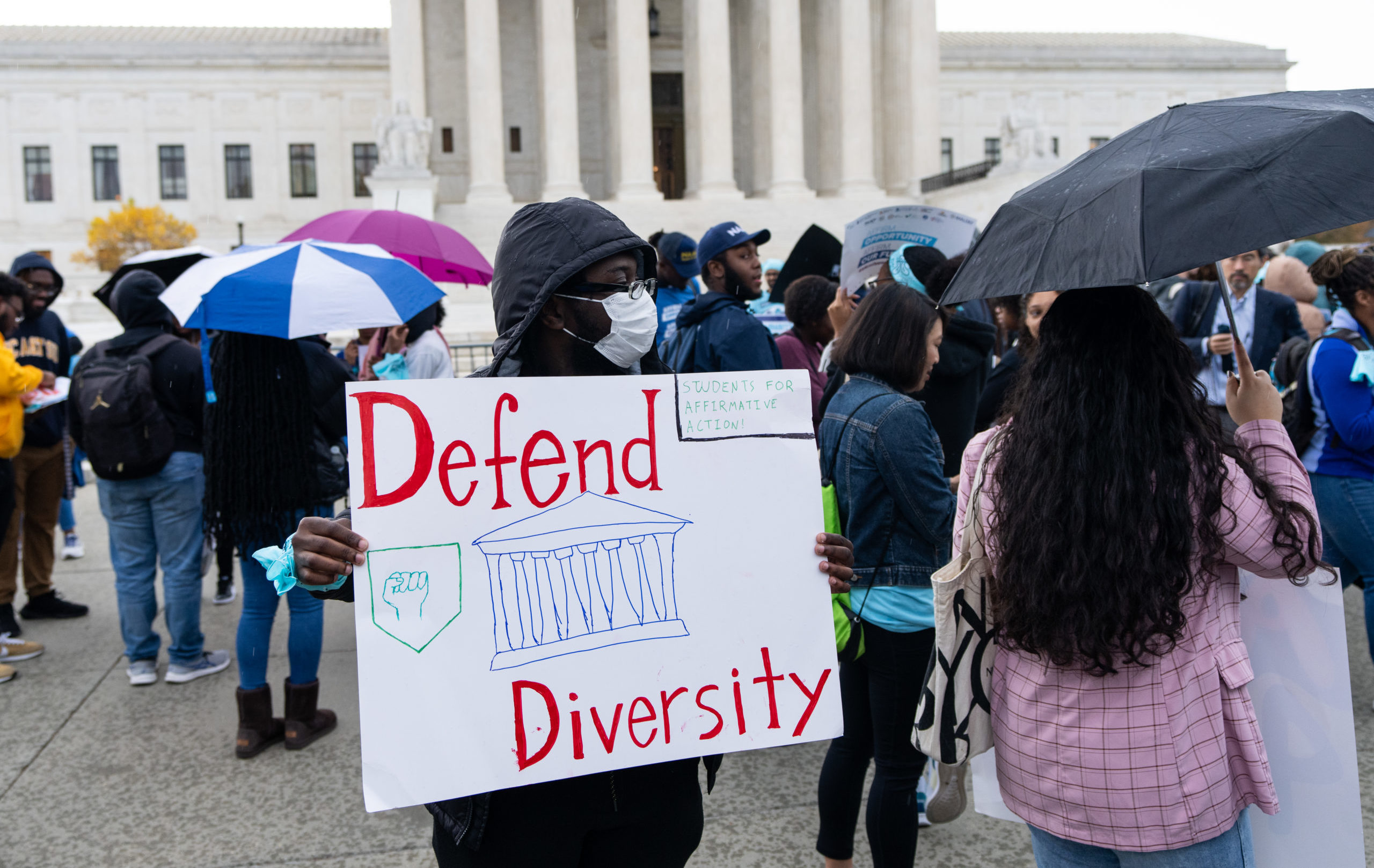Invidious Discrimination
State of the Union: Strict scrutiny for me, but not for thee.

Chicago law professor Sonja Starr argued this morning that the Supreme Court's striking down Harvard and UNC's affirmative action policies could threaten the legality of other race-conscious policies in education and government. She added that the logic of the Court's decision could even imperil the legal use of race-neutral means (e.g., geographic quotas in college admissions) to effect race-conscious ends.
Subscribe Today
Get daily emails in your inbox
As Starr points out, when the government's, or in some cases a private institution's, actions would limit a person or group's constitutional rights, or discriminate on the basis of a "suspect classification," the Supreme Court and lower courts bound by its precedents apply "strict scrutiny" to the proposed actions. She notes that, historically
when a policy’s language and implementation are race-neutral but its goals are race-conscious, courts apply strict scrutiny only when those goals are invidious — promoting racial disparity rather than fighting it.
But surely fighting racial disparity does not, or in any event should not, give an institution or the government the right to discriminate on the basis of race. In the case of affirmative action and policies like it—Starr describes a series of Fairfax County School Board policies intended, by facially race-neutral means, to increase Thomas Jefferson High School's proportion of black and Hispanic students—"fighting" racial disparities necessarily involves discrimination against qualified white and Asian students who are rejected for no reason but their race. The fact that Starr and previous majorities on the Supreme Court have not considered such discrimination to be invidious doesn't make it any less so.
Comments